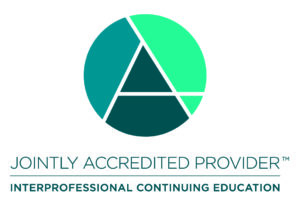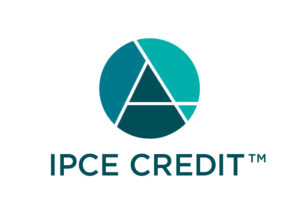Praxis Continuing Education & Training
Healing Trauma with ACT
Robyn D. Walser, PhD
12 CE credits available
Please read the complete course information below prior to registering.
Target Audience:
This course is for mental health professionals with a beginner–advanced background in this area. This includes counselors, nurses, physicians, psychologists, social workers, behavior analysts, and anyone looking to learn ACT to use with clients who have experienced trauma. It’s relevant to those with no ACT experience, and those who’ve been using ACT for years as they can learn something new with regards to using ACT to heal trauma.
Schedule: (12 hours total)
Week 1 – The fallout of trauma; Introduction to how ACT can help; Basics of psychological rigidity and flexibility; Overview of ACT’s 6 core processes. (135 min)
Week 2 – What is mindfulness and what are its benefits?; Compassion and self-compassion in trauma work; Awareness and Engagement processes. (128 min)
Week 3 – Functional analysis; Signs of flexibility and inflexibility; ACT case conceptualization in theory and in practice. (113 min)
Week 4 – The therapeutic relationship; The ACT therapeutic stance; Therapist burnout, compassion fatigue, and vicarious traumatization. (131 min)
Week 5 – Defining moral emotions and moral injury; Distinguishing moral injury from PTSD; Defining moral healing; Why and how to use ACT for moral healing. (128 min)
Week 6 – When to use other evidence-based trauma therapies; How to use them in an ACT-consistent way; Your impact as an ACT therapist. (86 min)
*Bonus – What is complex trauma; how to adjust treatment when it’s present. (Not a required part of the CE activity nor counted in CE hours.)
Overall Objectives:
At the conclusion of this course, participants will be able to:
1. Describe the impact of trauma and the role of language in the falsehood of orderliness
2. Explain the fallout of trauma and its impact on psychological flexibility
3. Differentiate between verbal and experiential knowing
4. Explain the three stages of trauma treatment
5. Explain how willingness and defusion can support approaches to exposure in trauma-focused treatment
6. Describe willingness to experience and its relationship to emotion and trauma exposure
7. Explain how present moment and mindfulness work can help trauma survivors recover
8. Describe how self-as-context can assist with the relationship to memories for those who have experienced trauma
9. Describe how values are violated and can be re-engaged following trauma fallout
10. Explain how to focus in-vivo exposures by using committed actions linked to values in trauma treatment
11. Explain the difference between trauma and moral injury
12. Identify moral injury in trauma survivors and describe how ACT can be used to treat it
13. Explain the importance of the interpersonal relationship in treating trauma
14. Describe how ACT can be integrated with other trauma treatments
15. Describe how to conceptualize a case from an ACT perspective
Grievance Procedures for CE Activities
Should a participant in the course be unsatisfied with the course, the participant should immediately contact our customer support team to file a grievance. Within five days, a customer support team member will contact the participant by email and/or phone and attempt to resolve the issue.
We will investigate and assess the issue from the perspective of the participant and every effort will be made to resolve the issue. If the issue is not resolved to the satisfaction of the participant, the participant will be offered a refund per the Refund and Cancellation Policy guidelines.
To file a grievance, please contact us at courses@praxiscet.com.
ADA Accommodations
To request accommodations for disabilities, please contact Praxis Continuing Education at courses@praxiscet.com.
Contact Information:
The Healing Trauma with ACT team can be contacted at courses@praxiscet.com
Praxis Continuing Education
5674 Shattuck Avenue
Oakland, CA 94609 USA
CE Information:
This non-live online course is sponsored by Praxis Continuing Education and Training and is approved for 12 CE Hours by the organizations listed below. Praxis CET maintains responsibility for the program with the CE approvals outlined below:

Joint Accreditation: In support of improving patient care, Praxis Continuing Education and Training, Inc. is jointly accredited by the Accreditation Council for Continuing Medical Education (ACCME), the Accreditation Council for Pharmacy Education (ACPE), and the American Nurses Credentialing Center (ANCC), to provide continuing education for the healthcare team. This activity was planned by and for the healthcare team, and learners will receive 12 Interprofessional Continuing Education (IPCE) credit for learning and change.
IPCE: This activity was planned by and for the healthcare team, and learners will receive 12
Interprofessional Continuing Education (IPCE) credit for learning and change.
Nursing: Praxis Continuing Education and Training, Inc. designates this activity for a maximum of 12 ANCC contact hours.
Physicians: Praxis Continuing Education and Training, Inc. designates this enduring material activity for a maximum of 12 AMA PRA Category 1 Credits™. Physicians should claim only the credit commensurate with the extent of their participation in the activity.

Psychologists: Continuing Education (CE) credits for psychologists are provided through the co-sponsorship of the American Psychological Association (APA) Office of Continuing Education in Psychology (CEP). The APA CEP Office maintains responsibility for the content of the programs.
Social Workers: As a Jointly Accredited Organization, Praxis Continuing Education and Training, Inc. is approved to offer social work continuing education by the Association of Social Work Boards (ASWB) Approved Continuing Education (ACE) program. Organizations, not individual courses, are approved under this program. Regulatory boards are the final authority on courses accepted for continuing education credit. Social workers completing this course receive 12 clinical continuing education credits.
Drug and Alcohol Counselors: This course has been approved by Praxis Continuing Education and Training, Inc. as a NAADAC Approved Education Provider, for 12 CE hours. NAADAC Provider #165310, Praxis Continuing Education and Training, Inc. is responsible for all aspects of its programming.

National Counselors: Praxis Continuing Education and Training, Inc. has been approved by NBCC as an Approved Continuing Education Provider, ACEP No. 6759. Programs that do not qualify for NBCC credit are clearly identified. Praxis Continuing Education and Training, Inc. is solely responsible for all aspects of the programs.
Behavior Analysts: Praxis CET is an approved BACB ACE Provider # OP-17-2718.
NY Counselors: Praxis Continuing Education and Training, Inc. is recognized by the New York State Education Department's State Board for Mental Health Practitioners as an approved provider of continuing education for licensed mental health counselors #MHC-0198.
NY Social Workers: Praxis Continuing Education and Training, Inc. is recognized by the New York State Education Department's State Board for Social Work as an approved provider of continuing education for licensed social workers #SW-0467.
NY Psychologists: Praxis Continuing Education and Training, Inc. is recognized by the New York State Education Department's State Board for Psychology as an approved provider of continuing education for licensed psychologists #PSY-0002.
NOTE: Many state boards accept offerings accredited by national or other state organizations. If your state is not listed, please check with your professional licensing board to determine whether the accreditations listed are accepted.
CE Course Launch Date: 10/2021
Expiration Date/Next scheduled review date: 10/2024
Disclosure of Relevant Financial Relationships
Praxis Continuing Education and Training is responsible for the content, quality, and scientific integrity of all CE activities certified for credit. When an educational activity is offered for medical (CME), Nursing (ANCC), and/or Psychology (APA) continuing education credit, participants must be informed as to the source, amount, nature, and disposition of any funding used to support the activity, whether in the form of educational grants, cash contributions, or in-kind contributions. Individuals in a position to influence course content must also disclose whether they have one or more relevant financial relationships with ineligible companies.
We define ineligible companies as those whose primary business is producing, marketing, selling, re-selling, or distributing healthcare products used by or on patients. There is no minimum financial threshold; individuals must disclose all financial relationships, regardless of the amount, with ineligible companies. We ask that discloses are made regardless of whether the individual views the financial relationships as relevant to the education. For more information on the Standards for Integrity and Independence in Accredited Continuing Education, please visit accme.org/standards.
All those in a position to control the content of an education activity are asked to disclose any relevant financial relationships they have with any ineligible companies.
There is no commercial support for this activity.
None of the planners or presenters for this educational activity have relevant financial relationship(s) to disclose with ineligible companies whose primary business is producing, marketing, selling, re-selling, or distributing healthcare products used by or on patients.
How to Obtain Your CE Certificate:
After completing the course, please follow these steps to access your course evaluation, post-test (when applicable), and CE certificate. To receive credit, you must complete the course in full, pass the post-tests with a cumulative average score of 80% or higher, and complete the course evaluation. No partial credit will be awarded. Please read through all of the instructions below before proceeding.
- Once you have completed all the modules and have taken the post-test for each module, go to the “Evaluation” tab on the course menu.
- If you have passed the post-tests with a cumulative average score of 80% or higher, the course feedback evaluation will be made available to you on the Evaluation page. You will be allowed to retake each post-test only once if you do not pass with an 80% or higher average.
- After submitting the feedback evaluation, a button will appear that will allow you to download your certificate.
We encourage members to submit the feedback evaluation within 6 months of course completion to earn their CE certificate.
Technical Requirements:
In order to complete this course, participants will need:
- A computer with a monitor, keyboard, and a mouse or a mobile device/tablet
- Speakers/headphones: either built‐in to your computer/device or external (plugged into your computer)
- An internet connection, either wired or wireless. A minimum connection speed of 3 megabits is required to stream clear, standard definition video.
- The course is supported on most up-to-date internet browsers (Google Chrome, Safari, Firefox, Microsoft Edge, Brave, etc.)
- A PDF viewer such as Adobe Acrobat Reader
- An email address
- [Optional] A mixed media player (such as iTunes/Windows Media Player) to listen to downloadable audio exercises. These are also available within the members area so this is not a strict requirement.
- [Optional] A printer or access to a printer (to print any of the PDFs, if desired)
- [Optional] A Facebook account for access to the Healing Trauma with ACT community group
References:
1) Brockman, R., Ciarrochi, J., Parker, P., & Kashdan, T. (2017). Emotion regulation strategies in daily life: Mindfulness, cognitive reappraisal and emotion suppression. Cognitive Behaviour Therapy, 46(2), 91–113.
2) Pacella, M. L., Hruska, B., & Delahanty, D. L. (2013). The physical health consequences of PTSD and PTSD symptoms: a meta-analytic review. Journal of Anxiety Disorders, 27(1), 33–46.
3) Kashdan, T. B., Disabato, D. J., Goodman, F. R., Doorley, J. D., & McKnight, P. E. (2020). Understanding psychological flexibility: A multimethod exploration of pursuing valued goals despite the presence of distress. Psychological Assessment, 32(9), 829.